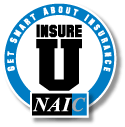|
|
|
WINTER WEATHER
: Winter's first storms have already left a
path of damage and power outages across the country. When a storm
strikes, it is important to know what to do if your home is damaged or
if you are involved in an automobile accident. Following are some
guidelines from the National Association of Insurance Commissioners
(NAIC) to help you deal with a property damage claim or automobile
accident.
| |
|
What to Do if Damage Occurs to Your Home
What Damage to Your Home is Covered? Damage caused by wind, wind-driven rain, trees or other falling objects, and the collapse of a structure due to weight of ice or snow are all covered under most standard homeowners policies. Frozen pipes as the result of extreme cold might not be covered if the damage is due to negligence, such as failing to maintain an adequate temperature in the house when the ability to do so is there. Check your policy and call your insurance agent or company if you need clarification or have specific questions. What Damage to Your Home is Not Covered? The following events are typically not covered by the
standard homeowners insurance policy: Interior water damage from a
storm, when there is no damage to the roof or walls of your home; damage
as the result of a flood; removal of fallen trees (if the trees do not
land on and damage your home); food spoilage due to a power outage; and
water damage from backed-up drains or sewers. Some insurers offer
endorsements (i.e., additional protection that may be purchased) for
certain coverages not covered under the standard homeowner policy. Check
with your agent or company to determine your needs.
|
What to Do if You Are in An Automobile Accident
Contact Your State Insurance Department If you have a dispute with your insurer about the amount or terms of the claim settlement, you can contact your state insurance department for assistance. Go to www.naic.org/state_web_map.htm to link to your state department Web site.
|
|
The National Association of Insurance Commissioners Headquartered in Kansas City, Mo., the
National Association of Insurance Commissioners (NAIC) is a voluntary
organization of the chief insurance regulatory officials of the 50
states, the District of Columbia and five U.S. territories. The NAIC's
overriding objective is to assist state insurance regulators in
protecting consumers and helping maintain the financial stability of the
insurance industry by offering financial, actuarial, legal, computer,
research, market conduct and economic expertise. Formed in 1871, the
NAIC is the oldest association of state officials. For more than 135
years, state-based insurance supervision has served the needs of
consumers, industry and the business of insurance at-large by ensuring
hands-on, frontline protection for consumers, while providing insurers
the uniform platforms and coordinated systems they need to compete
effectively in an ever-changing marketplace.
For more consumer information visit InsureUonline.org. | |
|
To unsubscribe from the "NAIC News Release"
electronic service, To unsubscribe from all NAIC
Electronic Services, send a blank e-mail to
NAIC Opt Out services. | |

